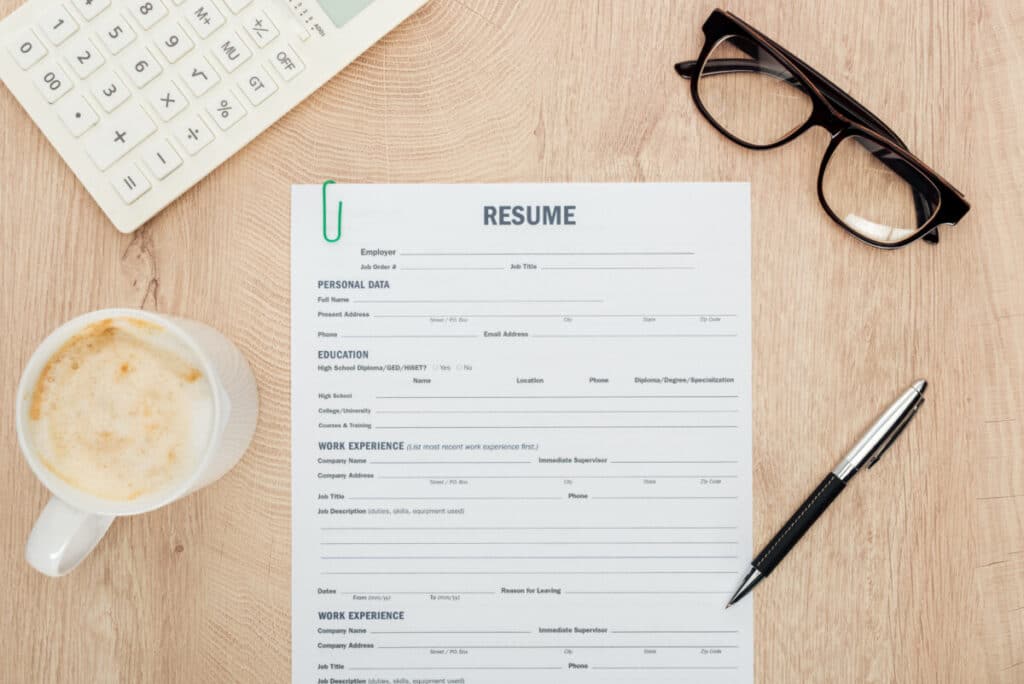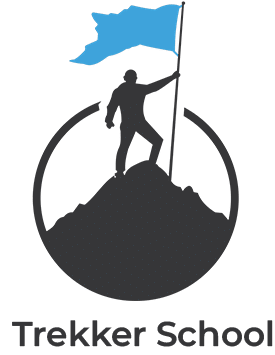How to Make a Resume for a First Job while in High School

In today’s world, having a lot of work experience is pretty necessary for people to find jobs and build sustainable careers. So what happens when you haven’t yet been able to gain any job experience? Is it possible to create a resume when you have seemingly very little to work with?
When creating a resume for a first job, add education information as well as any countable experience. Include grades and GPA (3.0 or higher), the projected graduation date, and the high school name. Include babysitting, lawn-mowing, or pet sitting jobs as well as more typical positions.
So, as you can see, creating a resume as a high school student looking for their first job can indeed be done, but it must be done with great care. It might feel a little bit intimidating at first but if you put a lot of thought into it, you won’t go wrong. Here is all you need to know when creating a first-time resume.
Building a Strong Resume
When you’re a high schooler creating a resume, it’s going to look a little different than the process for creating an experienced, college-level resume. You will need to place a larger focus on your education and any countable experience you may have gained. So, what does that look like?
First, focus on your personal information. List your name, address, phone number, and email at the top of the page. It needs to be large enough that it’s one of the first things people see. You don’t need to make it huge, just large enough to be attention-grabbing.
It’s generally a good idea to give a very brief summary of yourself and your skills on your resume. List a couple of special skills and talents that you have and explain what you’re looking for. You may also want to include any references or recommendations given by other people about you.
Next, start focusing on your education. You should give the name of your high school, talk about your class rank (unless it’s irrelevant), list your GPA as long as it’s high enough to draw attention, (usually 3.0 or higher), and your projected graduation date. You might even put down where you are going to be attending college, though if you’re still in your freshman or sophomore year, this may not be applicable.
Work experience is surely what you have been wondering/worried about the most. If you’re like most kids out there, you likely had a few gigs babysitting, pet sitting, shoveling snow, mowing lawns, weed-pulling, and other similar jobs when you were growing up. Put those under your experience section!
A lot of places such as grocery stores are usually willing to give young, inexperienced teens a chance, so make sure you’re listing all the work experience that you could think of. Even if it’s not “professional” most people will still see that experience and view you as a motivated, hard-working individual.
Do’s and Don’ts
Now, regardless of whether you are a fresh new high school student looking for their first job or an experienced college graduate with several years of schooling and work under their belt, there are some definite do’s and don’ts that should be explored when creating a resume. Let’s talk about a few of those.
Do’s
First, you do want to theme your resume based on the kind of job you’re looking for. This matters more for people with more experience they’d have to narrow down, but it can be very applicable to you as well. Make sure that you’re always listing the more relevant experience before or instead of the rest of your experience.
For example, if you’re looking to work at a daycare, you might start with any childcare experience you might have such as babysitting gigs and any other type of childcare experience you may have. No matter what, always prioritize relevant and related experience on your resume.

You should also give priority to the most prominent experience you may have. Any special awards you’ve been given, big projects you’ve completed, and anything else should also have a place at the forefront of your resume because this is likely what people will pay the most attention to.
Once you have hammered out all the details to your liking do some serious proofreading. Read over it yourself and then it might not be a bad idea to have two or three other sets of eyes reading it for you. Have your parents, a friend, or a sibling read over the resume and tell you what they think. It would be better for them to see any errors in your resume first than to have a potential employer see it and think twice before hiring you.
Don’ts
Listing your special skills is an important part of a resume, but the last thing you want is to make it sound generic. A lot of people say they’re hardworking, have good communication skills, can work well in a group, and a few other things like that. it’s fine if any of these are true for you, but you will need to give a few examples and instances during which you have used those skills. Otherwise, your resume is going to sound halfhearted and poorly thought out.
A lot of people think that if they have a load of experience that it’s important to list it all. This is not a good idea for two reasons. First, as mentioned earlier, you need to construct your resume around only relevant and prominent experience. This is the only experience that is going to matter to your employer so it’s the only info you should provide. Make it impressive, of course, but don’t go overboard.
Another reason is that no resume should go over two pages long. Now, as a high schooler, you probably don’t have to worry about having enough experience for two pages worth of a resume. However, you should be careful to arrange your experience in a way that’s not too lengthy. You’ll also want to keep the other components of the resume brief and to the point.
You should not exaggerate when writing a resume. You shouldn’t be afraid to list the experience you’ve gained because it could mean the difference between unemployment and being hired. However, you should never exaggerate or lie about your experience or education. Not only is it dishonest, but you could wind up getting fired if it turns out you are underqualified for the job you’re trying to get. And believe me when I say that does not look good on a resume.
Gaining Work Experience
Once you have built your resume (simple though it may be, which is okay!) your next step should be to focus on expanding that resume. Start applying to all the places you can! There are more places out there than you might think that will likely accept a small resume and a somewhat inexperienced worker. Many positions don’t even require a resume and are great opportunities to add work experience to your resume for future job applications. Here are a few options.
Grocery Bagger
Grocery stores generally offer really good starting jobs for inexperienced students. Not many grocery store jobs are that difficult to learn which makes them an ideal choice for high school students. Try applying to a few grocery stores and supermarkets in your area and see if you have any luck there.
Cashier
You can apply to be a cashier at grocery stores, but there are plenty of other places (gas stations, clothing stores, restaurants, etc.) that need cashiers as well. Being a cashier is a pretty straightforward job that shouldn’t take a lot of training and shouldn’t be too difficult to learn.

Car Wash Attendant
Being a car wash attendant isn’t the most exciting job in the world, but it’s not the most difficult either. There ought to be plenty of carwashes around where you live, most of which should be great options. Apply to as many of them as you can and see what turns up.
Waiter/Waitress
Being a waiter or waitress might take a little more time to learn, but once you do, it will come very easily. The nice thing is that most places aren’t going to require you to have a lot of experience to start learning how to wait tables. Some fancier restaurants might, but you can start at the bottom and work your way up if you’d like to.
Whatever you do, start applying right away, and apply to several places at once, if you’re able. This is the quickest way to find a job and also a good way to help you get used to the process. Take as many opportunities that come your way as possible. This will not only help you to find a job quickly, but it will also help you to get a lot more experience under your belt.
Job Interviews: How to Prepare
After you have built your resume and searched and applied for jobs, several interview opportunities are bound to present themselves. This part of the job-finding process is the most nerve-wracking part for a lot of people and if it is for you as well, that’s okay. There are certain things you can do and steps you can take that will help you to prepare for this part of it.
First of all, make sure you know where and when the interview is going to be and above all, make sure you’re there early. Yes, it’s fine if you’re right on time, but it impresses a lot of people when you show up early. It demonstrates your desire to be a good worker, your desire to get the job, and the level of commitment you’re willing to give.
Make sure you dress well, too. You may not think that this is necessary if you’re applying to work at a restaurant or a grocery store. However, if you have taken the time to work on your appearance and look your best, that, too, will make a statement about you. Plus, it will speak volumes about your professionalism.
At every job interview, you need to always have a copy of your resume to give directly to the employer. This will not only demonstrate your ability to be prepared and professional but will also help them to have an upfront idea of what you can do. Make sure you have polished it and proofread it before you hand it over and everything will be fine.
Sometimes it’s helpful to “practice” before you go to the interview. It can be kind of scary to be put on the spot and asked a bunch of questions, so if you prepare ahead of time and put a lot of effort into it, it might make the process a little bit easier for you. Try writing out what you want to say and practicing in front of the mirror a couple of times before you leave.
You could also try researching a few commonly asked interview questions and practicing your answers for each of them. Try answering different ones every time so you can ensure the best preparation for your interview. Every interview goes differently, so spend as much time as you want to prepare for it.
And speaking of questions, prepare a few of your own! If you have questions or concerns that you want to be addressed (even if it’s only to ask about the next step), then ask away! You could ask about the work environment, whether you need to do anything else in the interview/hiring process, and any questions you might potentially have about the job.

Asking these questions will help you to have your mind be put at ease about the job. You may also find that your inquisitiveness gives your employer the impression that you are serious about getting the job. That will make them far more likely to give you a shot.
Keep trying and keep attending interviews! The more you practice this, the more likely it will be that jobs come your way. When you get new jobs, make sure to add those to your resume as time goes on. Keep careful track of your cumulative experience so you can start broadening your horizon as time goes on.
